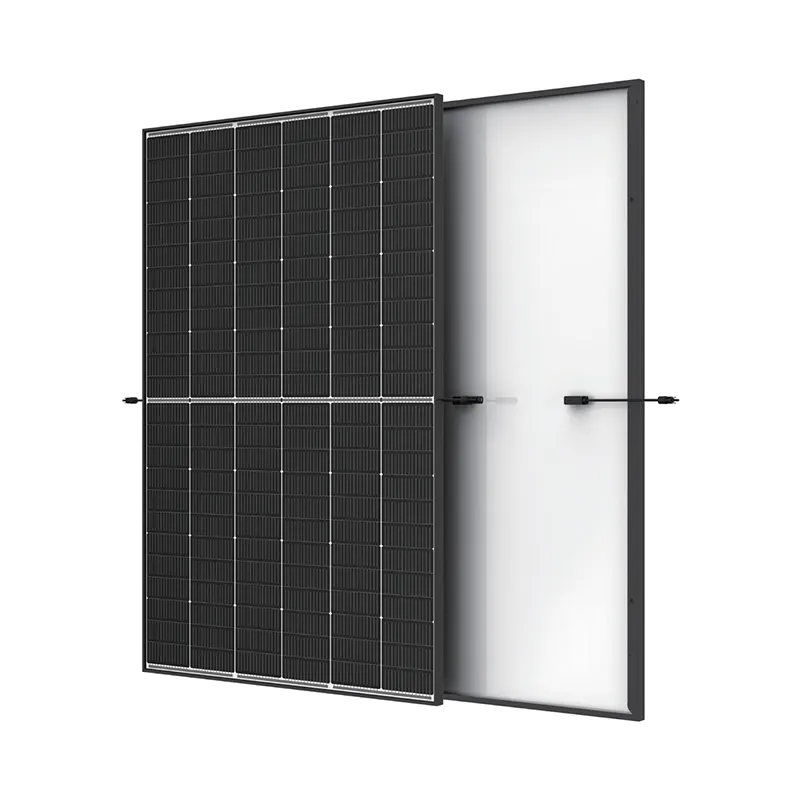Understanding Solar Panel Efficiency and Its Impact on Renewable Energy Performance
Understanding Solar Panel Conversion Efficiency A Key to Sustainable Energy
As the world increasingly turns to renewable energy sources, solar power stands out as one of the most promising alternatives to fossil fuels. Among the various factors influencing the viability of solar energy, the conversion efficiency of solar panels is paramount. This efficiency determines how well solar panels can convert sunlight into electricity, ultimately impacting energy output, cost-effectiveness, and the overall sustainability of solar power systems.
What is Solar Panel Conversion Efficiency?
Solar panel conversion efficiency refers to the percentage of sunlight that a solar panel can convert into usable electricity. It is a crucial metric as it effectively represents the effectiveness of the panel's technology. For instance, if a solar panel has an efficiency of 20%, this means that 20% of the sunlight hitting the panel is transformed into electric power, while the remaining 80% is reflected or absorbed as heat.
Efficiency ratings for solar panels have evolved significantly over the years. Early solar panels had efficiencies below 10%, but advancements in technology have led to panels currently available on the market achieving efficiencies of around 20% to 25% for commercial solar cells, with some high-end models reaching efficiency levels above 30%. These advancements are a result of ongoing research and development aimed at improving the materials and design of solar cells.
Factors Influencing Conversion Efficiency
Several factors affect the conversion efficiency of solar panels, including
1. Type of Solar Cell Different types of solar cells exhibit varying efficiencies. The most common types include monocrystalline, polycrystalline, and thin-film solar cells. Monocrystalline panels, known for their high efficiency and space-saving design, typically offer the best performance, while thin-film solar cells, although flexible and lightweight, tend to have lower efficiencies.
2. Temperature Solar panel performance decreases as temperatures rise. High temperatures can lead to a drop in output, making cooling systems and appropriate installation vital in hotter climates.
3. Angle and Direction The angle at which solar panels are installed and their orientation towards the sun can significantly influence efficiency. Optimal positioning can maximize sunlight exposure throughout the day.
solar panel conversion efficiency

4. Quality of Materials The purity and quality of the materials used in solar cells also affect efficiency. Higher-quality silicon, for instance, can lead to better electron mobility and increased performance.
5. Shading and Environmental Factors Shading from trees, buildings, or debris can drastically reduce the efficiency of solar panels. Regular maintenance and strategic placement can help mitigate these issues.
The Importance of Efficiency in Solar Power Systems
Higher conversion efficiency is critical for making solar power more competitive with traditional energy sources. For homeowners and businesses investing in solar technology, panels with higher efficiency can lead to more electricity generation from the same amount of sunlight, translating to reduced energy costs and shorter payback periods.
Moreover, as urban areas expand and land availability becomes a concern, efficient solar panels can maximize energy production without requiring additional space. This is particularly important in densely populated regions where rooftops are the primary locations for solar installations.
Future Outlook and Innovations
The quest for higher conversion efficiency continues, with researchers exploring various innovative approaches, including multi-junction solar cells that use multiple layers of materials to capture different wavelengths of sunlight, and perovskite solar cells, which have shown great promise in achieving high efficiency at lower production costs.
While current commercial solar panels are quite efficient, the potential for future advancements keeps the field dynamic and exciting. As technology continues to progress and efficiency improves, solar energy will become an even more integral part of the global energy landscape, paving the way towards a sustainable future.
In conclusion, solar panel conversion efficiency is a fundamental component of solar power systems that influences energy output, cost, and the overall effectiveness of renewable energy solutions. Understanding and improving this efficiency can lead to a cleaner, more sustainable energy future.
-
String Solar Inverter: The High-Efficiency Solution for Smart Solar EnergyNewsJul.14,2025
-
Revolutionizing Rooftop Energy with the Power of the Micro Solar InverterNewsJul.14,2025
-
Power Independence with Smart Off Grid Solar Inverter SolutionsNewsJul.14,2025
-
On Grid Solar Inverter: Powering the Future with Smart Grid IntegrationNewsJul.14,2025
-
Monocrystalline Solar Panels: High-Efficiency Power for the Future of Clean EnergyNewsJul.14,2025
-
Bifacial Solar Panel: A Smarter Investment for Next-Generation Energy SystemsNewsJul.14,2025







